- Complimentary Chat
- Complimentary Nutrition Assessment
-
-
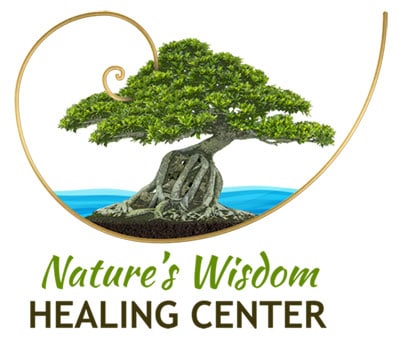 Nature's Wisdom Healing Center - Mary Cetan4920 Fruitville Road
Nature's Wisdom Healing Center - Mary Cetan4920 Fruitville Road
Sarasota, Florida 34232(941) 926-7899 - M9:00 am - 4:00 pmT9:00 am - 4:00 pmW9:00 am - 4:00 pmTH9:00 am - 4:00 pmF9:00 am - 4:00 pmSatmost 9:00 - noonSunClosed
-
Latest Articles:
- • The Best Ways to Protect Your Skin from the Sun This Summer •
- • Savoring Summer with Recipes Using the Best Summer Ingredients •
- • Top 5 Best Staycation Ideas for Summer •
Health WellNews
Cupping in Chinese Medicine
Have you seen those dark purple cup marks on the upper back of your favorite celebrity lately and wondered what that was all about? That is from an ancient Chinese medicine technique called cupping, which is a wonderful and effective supplement to an acupuncture treatment.
Cupping describes the practice of Chinese medical practitioners using thick glass cups in certain regions of the body to relieve pain and for other medicinal uses. In what is called “fire cupping,” the acupuncturist takes the glass cup, saturates a cotton ball with alcohol and applies a small flame to the cotton. The cotton is then placed in the glass cup (with lightning speed and accuracy) whereby the oxygen is removed from the glass and the skin is suctioned up tightly. What the cup is doing is drawing pressure out and up. Nowadays, some practitioners use plastic suction cups or cups made of bamboo.

There are two types of cupping: one is “dry cupping” and is the most common. This is where the cup stays put for about five minutes or more. The acupuncturist may in some instances use a small lancet to draw out a tiny amount of blood from an area before placing the cup over the region in what’s called “wet cupping.” The next type is called “moving cupping” and is the most pleasurable experience. This is when oil is put on the skin before the cup is suctioned so that the cup can be moved along a large region, for example, down your back. This feels like a massage and is very relaxing and helpful for stiffness. Multiple cups are typically used for any of these forms of cupping.
Why cupping?
Cupping promotes blood flow, eases stiffness and pain, especially in the back, neck, and shoulders and lifts tense muscles. By promoting better circulation through cupping, tissues receive vital nutrients and oxygen. Cupping releases stagnation of blood and lymph fluid and removes harmful toxins. It has been shown to help respiratory ailments and the common cold, muscle conditions, stress, arthritis, digestion and gynecological issues.
Cupping feels wonderful during and after treatment, but any bathing suit modeling or cruise vacations should be postponed a few days after therapy due to local redness or purple color and perhaps bruising of the area. You might have a small cup mark, but this is very common, it should dissipate in a couple of days, and is not harmful. Of course, if you experience any other acute complications, see your physician.
Certain conditions are contraindicated for cupping techniques and your acupuncturist will advise against treatment. These conditions include broken skin, skin ulcers, high fever, inflammation, thin skin that bleeds easily, pregnancy (no cupping on the abdomen) and bony areas of the body.
Cupping is an old therapy, and although some patients have mentioned seeing their grandparents apply cupping using glass jars, it is not recommended to self-diagnose or to try fire cupping at home on your own. It can be dangerous and you could get a severe burn or blisters. See your friendly acupuncturist to give you a relaxing cupping treatment that is both safe and effective.
The Liver: Mental & Emotional Aspects
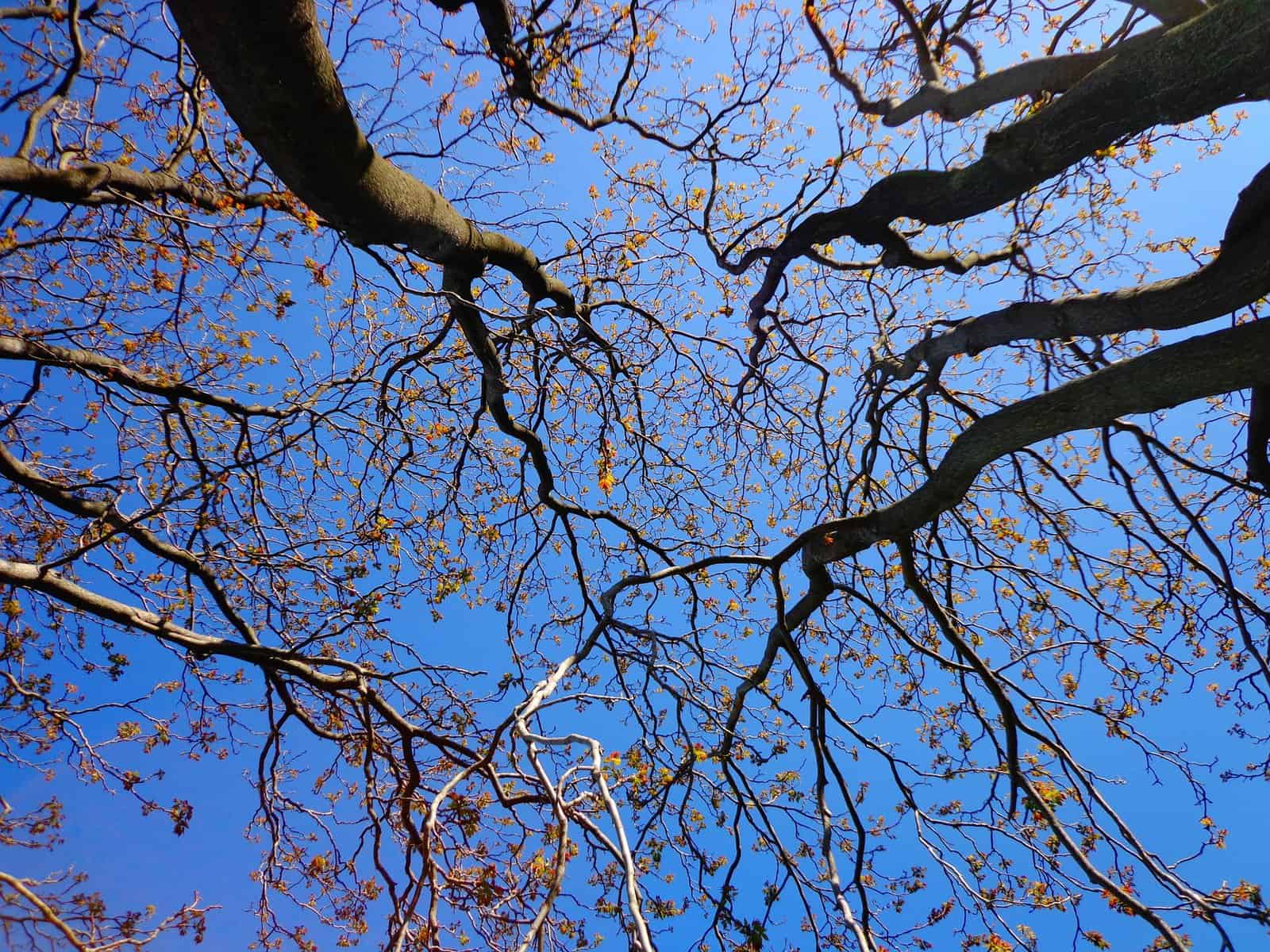 According to Traditional Chinese Medicine (TCM), the organ connected to springtime is the liver. The liver is connected to the wood element. Think about all of the new buds that come out in the springtime, this is the healthy state of the liver energy, full of creativity, desiring to move into and fill out a new space, unobstructed.
According to Traditional Chinese Medicine (TCM), the organ connected to springtime is the liver. The liver is connected to the wood element. Think about all of the new buds that come out in the springtime, this is the healthy state of the liver energy, full of creativity, desiring to move into and fill out a new space, unobstructed.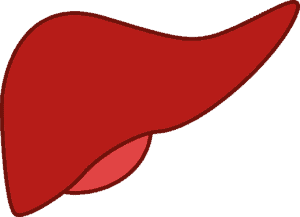
Each organ system in Chinese medicine is related to a specific emotion, liver is associated with anger when imbalanced and ease when balanced. When the emotional aspects of the liver are working in a balanced state, you are able to be flexible and strong and firm in your convictions, with proper boundaries between you and others around you. You grow and respect the space of others at the same time. The liver influences confidence and assertiveness, and the ability to make decisions and stick by them.
When the liver energy is obstructed due to over controlling or due to stagnation, frustration and anger can erupt. Physically, an over stressed liver can create tight tendons, necks and shoulders, and emotionally it can lead to a tightness of the spirit. Below is a image of of a character who has his liver energy blocked. When the liver energy is obstructed, everything in the body tends to rise upward. In these types of patients, you can often see the physical manifestations of their emotional state. These patients might hold everything in their bodies in a tight, rigid manner. They often clench or grind their teeth in anger and frustration. Their faces might be suffused with color. That doesn’t mean all people who have a liver imbalance act this way, or that the liver is responsible for creating miserable “Type A” individuals. This liver energy is necessary for keeping us on track. Without it, we wouldn’t have a sense of purpose, and we wouldn’t be able to get anything done.
When the liver energy is obstructed, everything in the body tends to rise upward. In these types of patients, you can often see the physical manifestations of their emotional state. These patients might hold everything in their bodies in a tight, rigid manner. They often clench or grind their teeth in anger and frustration. Their faces might be suffused with color. That doesn’t mean all people who have a liver imbalance act this way, or that the liver is responsible for creating miserable “Type A” individuals. This liver energy is necessary for keeping us on track. Without it, we wouldn’t have a sense of purpose, and we wouldn’t be able to get anything done.
On the other hand, a person with too weak of liver energy creates a lack of boundaries, allowing for a “pushover” mentality. This can show up when someone steps into her personal space, she steps back allowing the asserting person to overact on her. This is an example of lacking the assertiveness that a strong liver energy can bring forth. The key is balance.
When in a state of equilibrium, the liver can move us toward our goals, allowing us to plan and follow a steady course. It can keep us on track with our plans and ambitions, and protect us from those who want to cross our boundaries and take our energetic reserves. 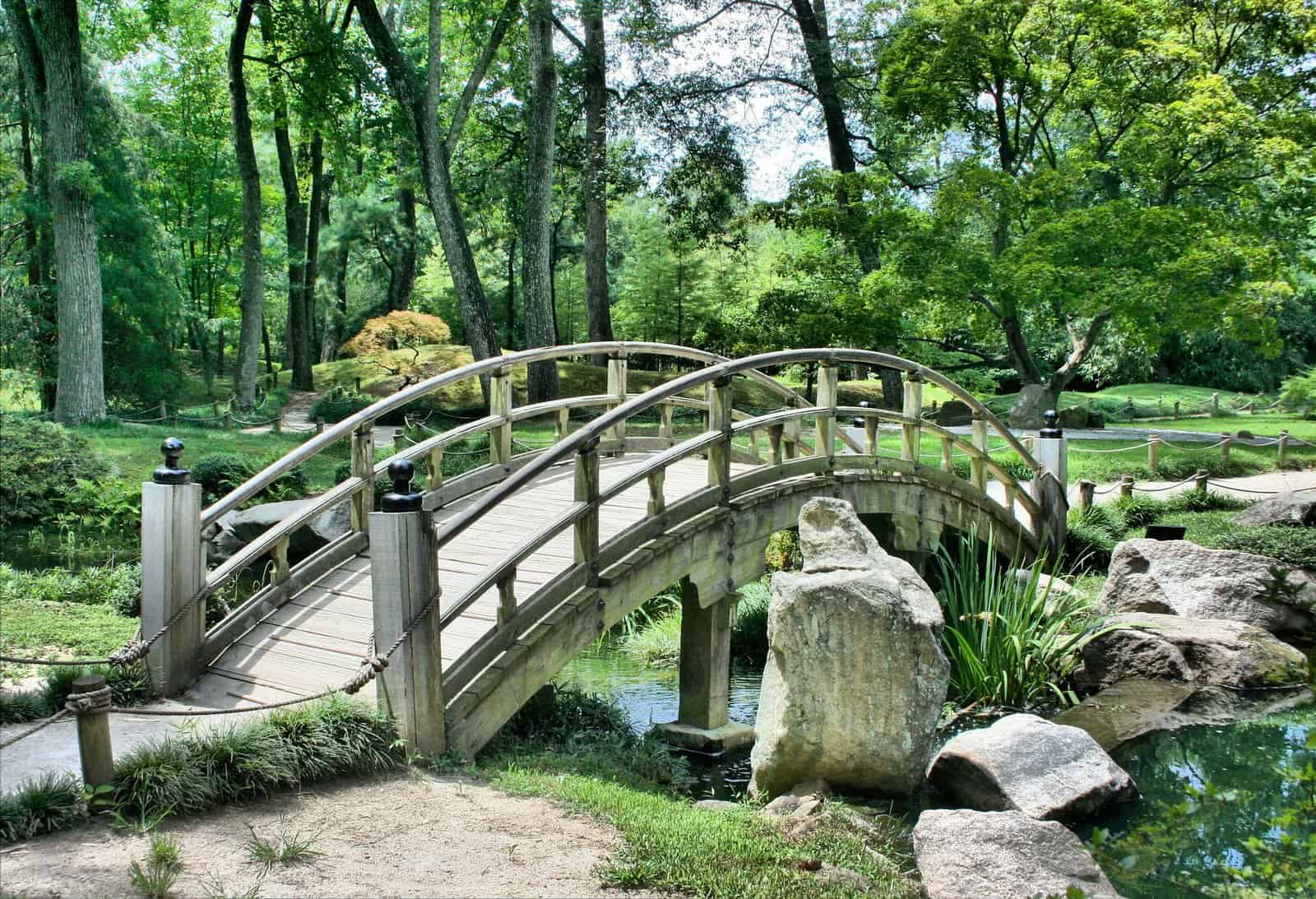 A common diagnosis in TCM is Liver Qi Stagnation and the treatment for this pattern is Regulate Liver Qi, the herbal formula for this pattern is Xiao Yao Wan / Free and Easy Wanderer. When a patient receives treatment for Liver Qi Stagnation, the pent up stress can flow and the frustration can turn into creation and meaningful self expression. Happy Spring!
A common diagnosis in TCM is Liver Qi Stagnation and the treatment for this pattern is Regulate Liver Qi, the herbal formula for this pattern is Xiao Yao Wan / Free and Easy Wanderer. When a patient receives treatment for Liver Qi Stagnation, the pent up stress can flow and the frustration can turn into creation and meaningful self expression. Happy Spring!
What’s Inside Your Medicine Cabinet?

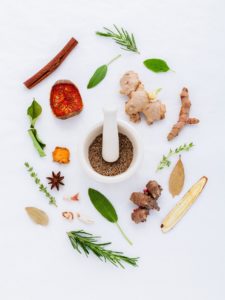 We all have a medicine cabinet, drawer or cupboard in our homes filled with seemingly harmless over-the-counter drugs, bandage material and other toiletries. Unfortunately, many of the OTC drugs in your medicine cabinet can be potentially dangerous and even lethal. The good news is, these drugs can be replaced with safe and effective herbal medicine. We recommend the highest quality herbs from MediHerb and this article will show you which ones you can depend on instead of the OTC medication that you are currently using. Our philosophy is nature first, drugs last.
We all have a medicine cabinet, drawer or cupboard in our homes filled with seemingly harmless over-the-counter drugs, bandage material and other toiletries. Unfortunately, many of the OTC drugs in your medicine cabinet can be potentially dangerous and even lethal. The good news is, these drugs can be replaced with safe and effective herbal medicine. We recommend the highest quality herbs from MediHerb and this article will show you which ones you can depend on instead of the OTC medication that you are currently using. Our philosophy is nature first, drugs last.
Painkillers / Anti-inflammation Medications
Painkillers like ibuprofen relieve headaches and reduce pain from inflammation in the joints. However, long-term use of non-steroidal anti-inflammatory drugs (NSAIDS) have been proven to eat away at the lining of the gastrointestinal tract, which can lead to ulcers. The use of NSAIDS have also been associated with increasing the risk of heart attack, heart failure and stroke, even in people who have no existing heart conditions. When you have achy joints especially when accompanied by low back pain our recommendation is white willow bark in the product called “Saligesic” by MediHerb.saligesic-pds If you are suffering from a headache, feel stressed and tense reach for the safer and ultimately more effective choice “Kava Forte” by MediHerb.inth13734-kava-forte-pdsThe most powerful herb with many benefits is turmeric. One of its main benefits is the anti-inflammatory property and the highest quality absorbable “Turmeric Forte” by MediHerb.turmeric-forte-pds-print-final-122217
Heartburn and Indigestion Medications
Many people suffer from heartburn and indigestion and then reach for proton-pump inhibitors (PPIs) like omeprazole or pantoprazole to reduce the stomach acid in the gastrointestinal tract, thus reducing the burning pain. However, PPIs are proving to be more harmful than helpful. Numerous studies have linked long term use of PPIs to kidney failure and even dementia. But for those who suffer with heartburn know that the pain of heartburn can be excruciating and need a solution. Our pick for heartburn relief is “HiPep” by MediHerb because it
reduces stomach acid secretions along with relieving stomach upset from emotional tension.
hipep-pds
Cough Syrup and Cold Medications
Over-the-counter (OTC) cough and cold medicines are abundant and while some may work, they can come with some potentially harmful side effects. Dextromethorphan hydrobromide is a cough suppressant and promethazine is an antihistamine. Both are commonly found in OTC cold medications. These drugs can cause hives, difficulty breathing, facial swelling, dizziness, anxiety, restlessness and nausea, just to name a few of the side effects. There is also the potential for abuse if not taken properly. The natural alternative we recommend that everyone keep in their medicine cabinet is “Herbal Throat Spray” by MediHerb. herbal-throat-spray-phytosynergist-pdsGolden seal has been utilized by human kind for thousands of years to support moucous membranes. We recommend the highest quality “Golden Seal 500mg” by MediHerb. golden-seal-500mg-pds
Gain access to ordering MediHerb products here: Standard Product Patient Direct![]() Acupuncture plus herbal formulas can be a wonderful alternative to those harmful medications. Also, don’t forget to evaluate your daily diet. Diet can play a big role in how your body heals. Making minor adjustments to your eating habits and adding acupuncture to your health regimen can alleviate stress, decrease pain and boost your immunity. Remember, you ultimately have the choice when it comes to your health and what you put in your body. Be sure to take the time to make informed decisions that add to your life.
Acupuncture plus herbal formulas can be a wonderful alternative to those harmful medications. Also, don’t forget to evaluate your daily diet. Diet can play a big role in how your body heals. Making minor adjustments to your eating habits and adding acupuncture to your health regimen can alleviate stress, decrease pain and boost your immunity. Remember, you ultimately have the choice when it comes to your health and what you put in your body. Be sure to take the time to make informed decisions that add to your life.
How Weather Affects Pain
Almost everybody has heard one of their relatives complain about how painful their joints become when the weather changes, especially when it gets cold or rainy. But is there any validity to this claim? And what about people who live live in consistently cold, rainy or damp climates? Do they have the same complaints about body aches and pains? The short answer is both yes and no. There is some truth to this, but it might not be what you think.

Achy joints, arthritis flare ups and intense migraines are just some of the ways people can predict the weather coming. And while it may seem far-fetched, there is something going on there. Scientists have studied this, but even they can’t agree. There are however, several theories why weather affects pain. The most common theory is air pressure, or barometric pressure, is what is actually affecting pain levels.
Barometric pressure is the weight of the atmosphere that surrounds us. Just before a storm hits, barometric pressure drops. The lower air pressure allows the tissues to expand and this can lead to added pressure on the joints. This may increase pain in those areas.
Another theory is more psychological. It is well documented weather can affect a person’s mood. When a person feels gloomy or depressed, their perception of pain can be increased. This happens frequently in areas where winters are long and cold. It even has a name: Seasonal Affective Disorder or SAD.
One thing for certain is our bodies adjust to our environments. A recent study looked at people in four cities: Nashville, San Diego and two cities in Massachusetts. The study concluded people experience changes in their pain when the weather changed no matter where they lived. Pain worsened when the barometric pressure fell, which occurs right before a storm or drastic weather changes. And since our bodies adjust to our environment, it is safe to say no matter where a person lives, their pain will go with them. They may not notice it as much at first after moving to a new climate, but eventually it will come back.
The weather affects our bodies in other ways too. High levels of humidity can thicken the blood over time. This can increase the pressure in the blood vessels and the heart. This causes the heart to work harder to pump the blood throughout the body and may ultimately lead to a stroke or a heart attack. Those living in high humidity climates also have to worry about excessive sweating that can lead to dehydration. When the body is dehydrated, the joints ache more. This is why drinking water is so important, not just in high humidity areas, but everywhere.
Regardless of the cause, acupuncture and Traditional Chinese Medicine can be very helpful in the treatment of aches and pains. No matter where you live, Traditional Chinese Medicine can help.
5 Reasons to Try Acupuncture This Winter
Winter is one of the five seasons acknowledged by Traditional Chinese Medicine. The ancient Chinese followed the belief humans should live in harmony with the cycles of nature. During the winter months, darkness and cold indicate we should slow down, take care of our health, conserve our strength and replenish our energy for the upcoming spring and summer months.

Each season has multiple associations that help us adjust our habits as things change, which makes it easier to keep the body and mind balanced. Winter is ruled by the water element. The water element is associated with the kidneys and urinary bladder. According to Traditional Chinese Medicine philosophy, the kidneys are the source of all energy found within the body. This energy is what keeps us alive and allows our bodies to function properly. During the winter months, it’s vital we nourish and nurture our kidney energy.
Winter is typically a time when we decrease our daily activities. For many people, this coupled with longer hours of darkness, can lead to Seasonal Affective Disorder. This form of depression occurs during the winter months. It can be very debilitating for those who suffer from it. But acupuncture can help. Studies show regular acupuncture treatments can be as effective as prescription medications for treating depression and seasonal affective disorder.
The most common ailment that occurs during the winter months is the cold. The cold is a viral infection of the upper respiratory tract, nose and throat. Because we’re not as active during the winter months, our immunity tends to be lowered and this is when the cold viruses can attack. While colds usually have to run their course, acupuncture can help shorten the length of the cold and drastically decrease the symptoms.
Over the past decade or so, the norovirus has become more prevalent during the winter months. This particular virus causes gastroenteritis or gastrointestinal tract disorders like diarrhea. During the initial few days of a norovirus attack, people need to stay home and hydrate themselves. But once the diarrhea becomes less frequent, acupuncture can be very helpful in decreasing the symptoms and boosting the person’s immunity.

